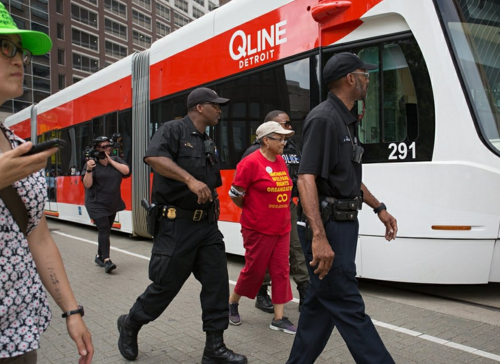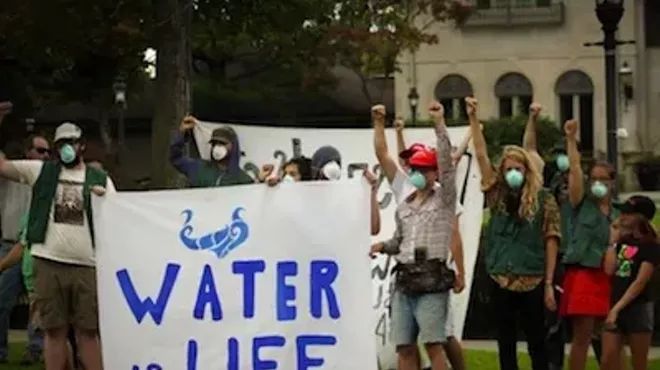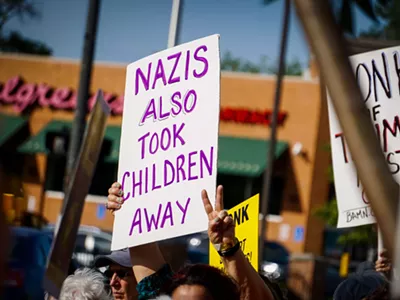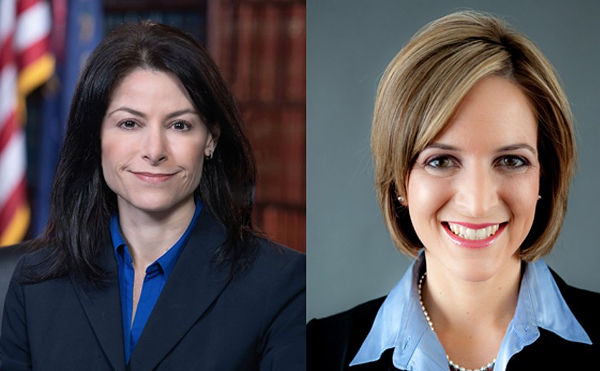Nearly two dozen arrested for blocking QLine during water shutoff protest in Detroit

Audio By Carbonatix
[
{
"name": "GPT - Leaderboard - Inline - Content",
"component": "35519556",
"insertPoint": "5th",
"startingPoint": "3",
"requiredCountToDisplay": "3",
"maxInsertions": 100,
"adList": [
{
"adPreset": "LeaderboardInline"
}
]
}
]

Amy K Senese
Nearly two dozen people were arrested yesterday when they blocked the QLine as part of a protest against Detroit's ongoing water shutoff program.
The protest was part of a series of demonstrations coordinated by the Michigan chapter of the Poor People's Campaign ahead of a big gathering in Washington D.C. this weekend. The demonstration began outside the Detroit Water and Sewerage Department, then protesters march to Campus Martius, where they "liberated" the water from the fountain, blocked the entryway of One Campus Martius, and halted street car traffic.
Coordinator Valerie Blakely says 23 people were arrested. She says most of the demonstrators face misdemeanors for obstruction for halting the QLine, while five who blocked the entrance of One Campus Martius were cited for trespassing.
A Detroit police official confirmed the arrests in an interview with the Detroit News.
Marian Kramer from the Michigan Welfare Rights Organization arrested as demonstrators blocked a Q-line street car on Woodward Ave in downtown Detroit. A direct action that was part of a larger event organized by the @michiganpoorpeoplescampaign Monday, June 18th, 2018. #aksensei pic.twitter.com/aeYQ6k17Qn
— Oya Amakisi (@oamakisi) June 19, 2018
"Water is for people and not for profit," Blakely said in a phone call Tuesday. "We're standing against the water shutoffs in the middle of a Hepatitis A epidemic."
The city of Detroit has been shutting off water to more than 17,000 households each year — though DWSD opts to refer to this practice as a "service interruption," with the implication being that most people go on to pay their bill and have there water service restored. But activists behind bottled water distribution programs charge there are Detroiters who've been living without water service for years.
This March, DWSD said more than 17,000 customers behind on their bills were at risk of shut off.
Water rights activists have called for a water affordability program that would set rates based on income, but the city has claimed a state law prohibits it. Philadelphia has a water affordability program in place. Detroit offers payment plans and assistance to those behind on their bills, but activists have charged that even with the help, the bills remain unaffordable in a city in which 1 in every 3 people live in poverty.
Stay on top of Detroit news and views. Sign up for our weekly issue newsletter delivered each Wednesday.






